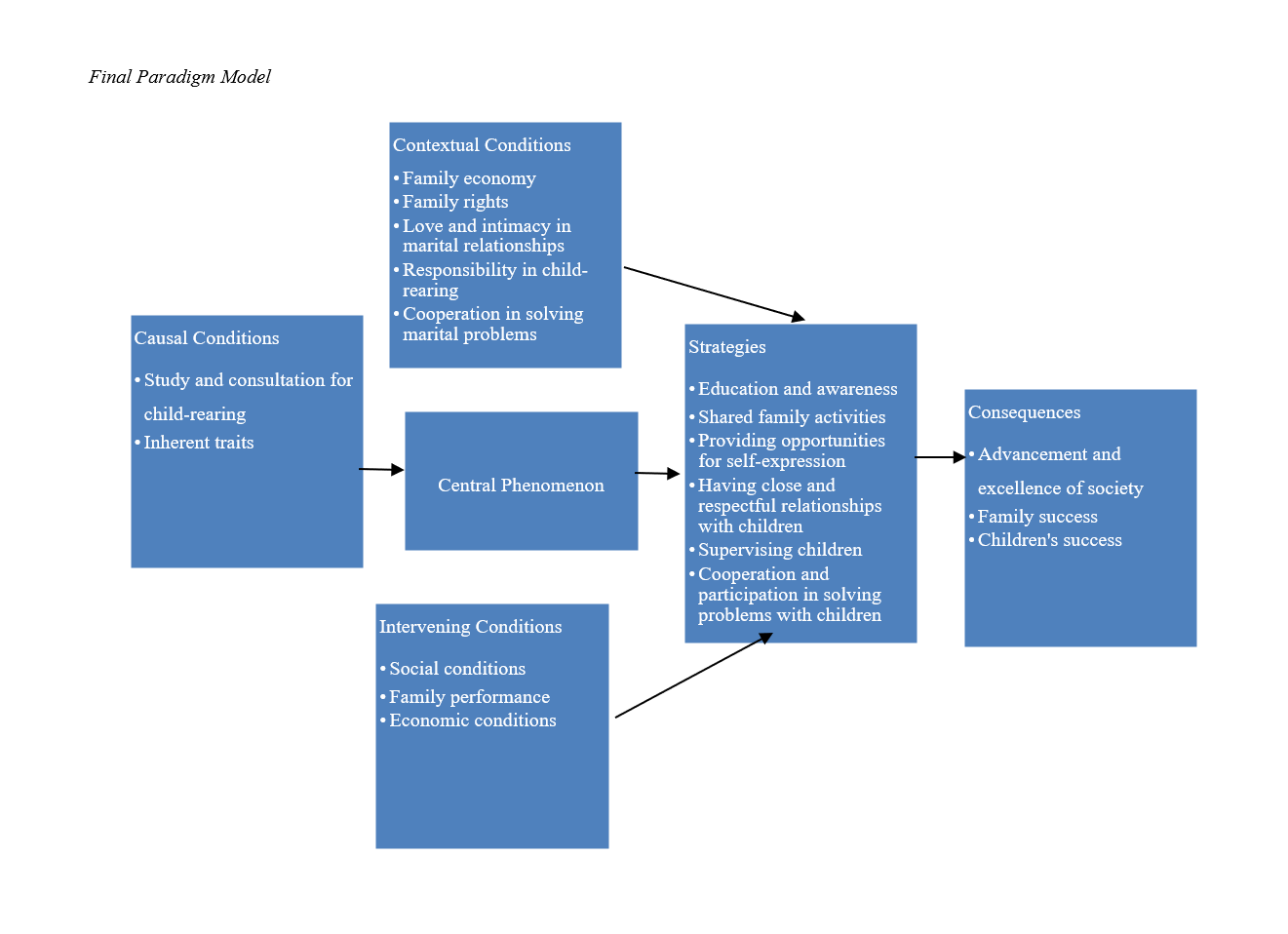Designing and explaining the indigenous model of successful parenting
Keywords:
Successful Parenting, Contextual Factors, Causal Conditions, Strategies of Successful Parenting, Outcomes of Successful ParentingAbstract
Background and purpose: Successful parenting is a new and universal program of Shamwald about parenting that creates a positive relationship between parents and their children. Therefore, the aim of the current research was to design and explain the indigenous model of successful parenting. Research method: The method of this qualitative research is phenomenology and the statistical population included all parents of elementary school students in Isfahan city in the academic year of 2022 of which 32 people (16 couples) were sampled. The measurement tool of the research was interview. Interview data were analyzed using MAXQDA 2020 software. Findings: The results of this research indicate that the background conditions of successful parenting, family economy, family law, love and intimacy in couple relationships, parental responsibility towards raising children, common thinking and sharing in solving marital issues and problems, are the causal conditions of successful parenting. , study and consultation for raising children, inherent characteristics (parents' personality), intervening conditions (disturbing/facilitating), social conditions of society, economic conditions of society, family functioning, successful parenting strategies, education and awareness, joint family recreation, giving The opportunity to express oneself, to have sincere and respectful relationships with children, to supervise children, to think together and to participate in solving problems and problems with children, is the consequences of successful parenting, the progress and excellence of society, the success of the family, the success of children. Conclusion: The native model for successful parenting is based on causal, contextual, intervening factors and strategies and consequences of successful parenting. The designed model can be effective for family counselors and psychologists as well as parents in the direction of parenting.
Downloads

Downloads
Additional Files
Published
Submitted
Revised
Accepted
Issue
Section
License
Copyright (c) 2024 Ghazal Taghikhani (Author); Mahmoud Goudarzi (Corresponding Author); Hamzeh Ahmadian (Author)

This work is licensed under a Creative Commons Attribution-NonCommercial 4.0 International License.








